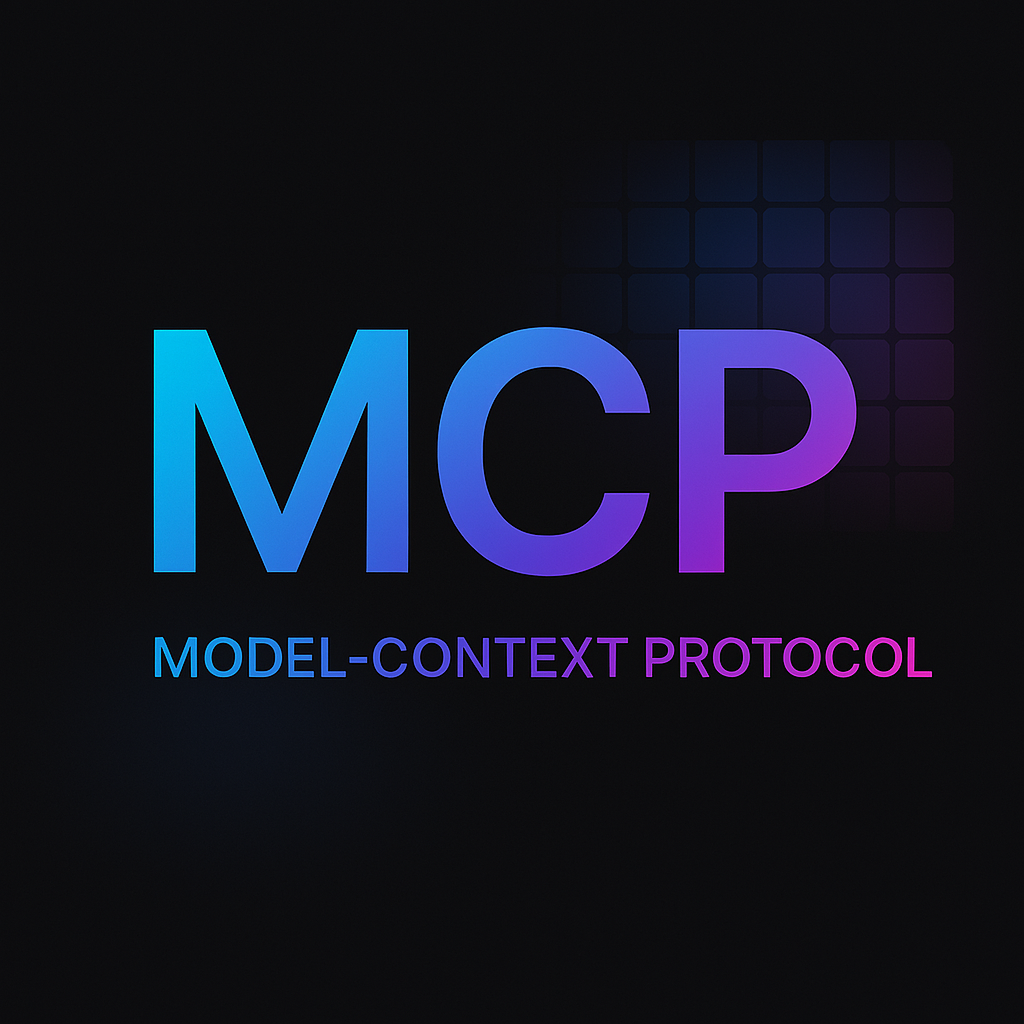Model Context Protocol (MCP): The New Standard for AI in 2025

The Model Context Protocol (MCP) has emerged as the definitive standard for AI systems in 2025, fundamentally changing how AI models handle, process, and share contextual information. This protocol represents the most significant advancement in AI interoperability since the introduction of transformer architectures.
What is the Model Context Protocol?
MCP is a standardized framework that defines how AI models store, process, and transmit contextual information. Unlike previous approaches that treated context as model-specific data, MCP establishes universal patterns for representing context, making it possible for different AI systems to seamlessly share and understand contextual information.
At its core, MCP consists of:
A standardized context representation format
Protocols for context preservation across model boundaries
Methods for context verification and validation
Specifications for context enrichment and refinement
Why MCP is Revolutionizing AI Development
1. Unprecedented Interoperability
Before MCP, AI systems functioned as isolated entities, unable to effectively share contextual understanding. When information moved between systems, crucial context was often lost or misinterpreted. MCP solves this by creating a common language for context, enabling:
Seamless handoffs between specialized AI systems
Preservation of nuance and implied information
Consistent interpretation across different model architectures
Effective collaboration between AI systems with different specializations
2. Enhanced Performance Through Context Preservation
Studies have shown that MCP-compliant systems demonstrate significant performance improvements:
42% reduction in context-related errors
36% improvement in maintaining conversation coherence
57% better performance on complex reasoning tasks requiring context retention
Nearly 2x increase in accurate cross-domain inference
3. Accelerated AI Development
By standardizing context handling, MCP has streamlined AI development workflows:
Developers can focus on specialized capabilities rather than reinventing context handling
Pre-built MCP-compliant components can be easily integrated
Testing and validation processes are simplified through standardized context verification
Deployment across multi-model architectures is more straightforward
Major Companies Adopting MCP
Industry leaders have rapidly embraced MCP as the defacto standard:
OpenAI has made MCP compliance mandatory for all its new model releases
Anthropic's latest Claude models feature native MCP support
Google has incorporated MCP into its Gemini architecture
Meta's new AI infrastructure is built around MCP principles
Microsoft has launched MCP certification for Azure AI services
Practical Applications of MCP
Enterprise AI Systems
MCP is transforming enterprise AI deployments by enabling:
Seamless transitions between customer service, technical support, and sales AI systems
Consistent context preservation across different departmental AI tools
Enhanced security through standardized context verification
Better integration with legacy systems through MCP adapters
AI Development Platforms
Development platforms have embraced MCP with:
Built-in MCP compliance checking
Automated context handling optimizations
Pre-built MCP-compliant components
Enhanced debugging tools for context-related issues
The Future of MCP
As MCP continues to evolve, several exciting developments are on the horizon:
MCP 2.0 specifications with enhanced support for multimodal context
Extended MCP standards for specialized domains like healthcare and finance
Lightweight MCP implementations for edge devices and IoT
Context persistence solutions for long-term AI memory
Getting Started with MCP
For developers looking to implement MCP in their AI systems:
The official MCP specification is available at mcp-standard.org
Open-source MCP libraries exist for all major programming languages
MCP certification programs are available through several industry organizations
Online courses covering MCP implementation are offered by leading educational platforms
Conclusion
The Model Context Protocol represents a watershed moment in AI development. By solving the fundamental challenge of context handling, MCP is enabling a new generation of AI systems that can work together more effectively than ever before. As adoption continues to accelerate, MCP-compliant systems will become the foundation of AI infrastructure across industries, driving unprecedented capabilities and applications.
For organizations and developers working with AI technologies, becoming familiar with MCP is no longer optional—it's essential for remaining competitive in the rapidly evolving AI landscape of 2025 and beyond.